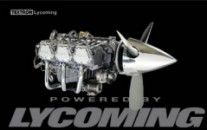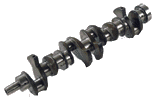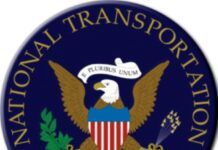FAA Approval Expected This Week…
 Almost half the crankshafts needed to fix engines caught in the Lycoming recall have been forged and have passed a rigorous quality-control process, a company spokesman told AVweb this week. Sue Bishop, manager of corporate communications for Lycoming’s parent company, Textron, said there now are 559 shiny new cranks waiting for installation. “We’re just waiting for final approval from the FAA,” said Bishop. “We hope to have that in the next week,” and then, “we should be able to do about 30 a day.” Bishop told us that as soon as the FAA, which has been monitoring the program closely, gives the thumbs-up, the company can start reassembling the first of between 1,100 and 1,400 300-plus-horsepower, turbocharged IO-540 engines that need new crankshafts. “My guess is, that can begin the very next day,” she said. “We’re still on target to have all the engines repaired during the second quarter (of 2003).” The work will be split between the Lycoming factory and about 30 authorized service centers worldwide.
Almost half the crankshafts needed to fix engines caught in the Lycoming recall have been forged and have passed a rigorous quality-control process, a company spokesman told AVweb this week. Sue Bishop, manager of corporate communications for Lycoming’s parent company, Textron, said there now are 559 shiny new cranks waiting for installation. “We’re just waiting for final approval from the FAA,” said Bishop. “We hope to have that in the next week,” and then, “we should be able to do about 30 a day.” Bishop told us that as soon as the FAA, which has been monitoring the program closely, gives the thumbs-up, the company can start reassembling the first of between 1,100 and 1,400 300-plus-horsepower, turbocharged IO-540 engines that need new crankshafts. “My guess is, that can begin the very next day,” she said. “We’re still on target to have all the engines repaired during the second quarter (of 2003).” The work will be split between the Lycoming factory and about 30 authorized service centers worldwide.
…New Processes, More Training…
 The crankshafts were recalled via Service Bulletins 552 and 553 in August and September, after several failed. The failures were traced to improper heat treatment during the forging process at Interstate Forging in Navisota, Texas … a problem that previously plagued Lycoming’s -360 series. The faulty temperature control caused the metal to become weak and brittle. Bishop said the replacement cranks have been through a multi-stage system of checks and tests to ensure they are up to standard. Under the watchful eye of the FAA, the new crankshafts are produced with a press forging that incorporates automated induction heating, and the temperature is monitored at the furnace exit. Impact testing is done on each new crank, and they are also analyzed under a scanning electron microscope. More training and instructions have been given to Interstate staff, and their work is audited more frequently.
The crankshafts were recalled via Service Bulletins 552 and 553 in August and September, after several failed. The failures were traced to improper heat treatment during the forging process at Interstate Forging in Navisota, Texas … a problem that previously plagued Lycoming’s -360 series. The faulty temperature control caused the metal to become weak and brittle. Bishop said the replacement cranks have been through a multi-stage system of checks and tests to ensure they are up to standard. Under the watchful eye of the FAA, the new crankshafts are produced with a press forging that incorporates automated induction heating, and the temperature is monitored at the furnace exit. Impact testing is done on each new crank, and they are also analyzed under a scanning electron microscope. More training and instructions have been given to Interstate staff, and their work is audited more frequently.
…Exact Number Still Unknown
 Lycoming still doesn’t know exactly how many crankshafts will have to be replaced. All 950 engines covered under SB 552 must be redone — but SB 553 called for core sampling the crankshafts of 736 more engines to see if they needed replacing. As of last week, 372 tests had been completed and 260 engines were returned to service. Repairs will be done on a priority basis and, in fact, some engines have already been fixed. Bishop said Lycoming was able to find enough crankshafts forged prior to the heat-treatment problems to get the California Highway Patrol’s fleet of Cessna 206s back in the air. Law-enforcement agencies top the priority list, followed by engines needed by airlines. After those are done, the remainder will be fixed basically in the order they come into the repair facilities.
Lycoming still doesn’t know exactly how many crankshafts will have to be replaced. All 950 engines covered under SB 552 must be redone — but SB 553 called for core sampling the crankshafts of 736 more engines to see if they needed replacing. As of last week, 372 tests had been completed and 260 engines were returned to service. Repairs will be done on a priority basis and, in fact, some engines have already been fixed. Bishop said Lycoming was able to find enough crankshafts forged prior to the heat-treatment problems to get the California Highway Patrol’s fleet of Cessna 206s back in the air. Law-enforcement agencies top the priority list, followed by engines needed by airlines. After those are done, the remainder will be fixed basically in the order they come into the repair facilities.
Almost half the crankshafts needed to fix engines caught in the Lycoming recall have been forged and have passed a rigorous quality-control process, a company spokesman told AVweb this week. Sue Bishop, manager of corporate communications for Lycoming’s parent company, Textron, said there now are 559 shiny new cranks waiting for installation. “We’re just waiting for final approval from the FAA,” said Bishop. “We hope to have that in the next week,” and then, “we should be able to do about 30 a day.” Bishop told us that as soon as the FAA, which has been monitoring the program closely, gives the thumbs-up, the company can start reassembling the first of between 1,100 and 1,400 300-plus-horsepower, turbocharged IO-540 engines that need new crankshafts. “My guess is, that can begin the very next day,” she said. “We’re still on target to have all the engines repaired during the second quarter (of 2003).” The work will be split between the Lycoming factory and about 30 authorized service centers worldwide.
The crankshafts were recalled via Service Bulletins 552 and 553 in August and September, after several failed. The failures were traced to improper heat treatment during the forging process at Interstate Forging in Navisota, Texas … a problem that previously plagued Lycoming’s -360 series. The faulty temperature control caused the metal to become weak and brittle. Bishop said the replacement cranks have been through a multi-stage system of checks and tests to ensure they are up to standard. Under the watchful eye of the FAA, the new crankshafts are produced with a press forging that incorporates automated induction heating, and the temperature is monitored at the furnace exit. Impact testing is done on each new crank, and they are also analyzed under a scanning electron microscope. More training and instructions have been given to Interstate staff, and their work is audited more frequently.
Lycoming still doesn’t know exactly how many crankshafts will have to be replaced. All 950 engines covered under SB 552 must be redone — but SB 553 called for core sampling the crankshafts of 736 more engines to see if they needed replacing. As of last week, 372 tests had been completed and 260 engines were returned to service. Repairs will be done on a priority basis and, in fact, some engines have already been fixed. Bishop said Lycoming was able to find enough crankshafts forged prior to the heat-treatment problems to get the California Highway Patrol’s fleet of Cessna 206s back in the air. Law-enforcement agencies top the priority list, followed by engines needed by airlines. After those are done, the remainder will be fixed basically in the order they come into the repair facilities.


































